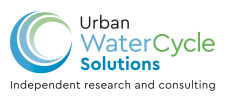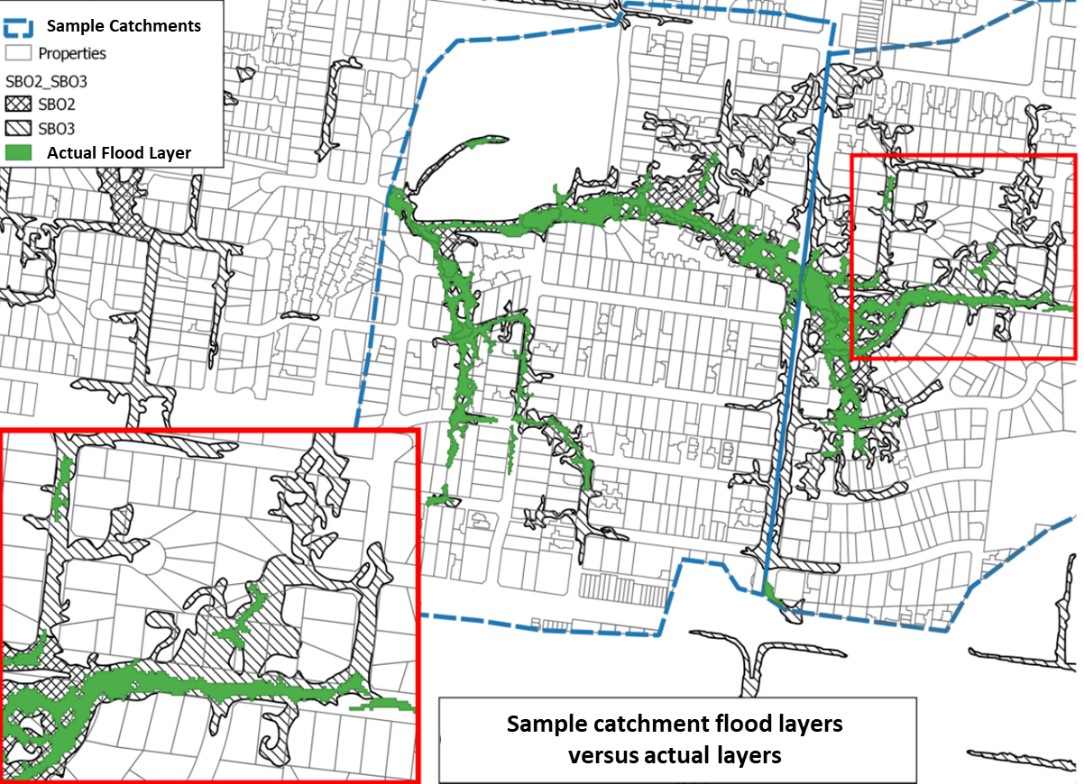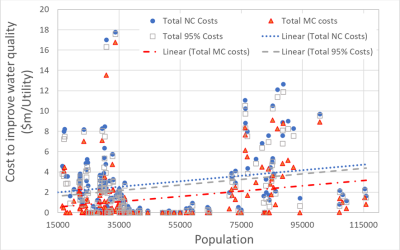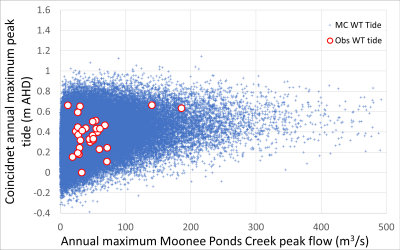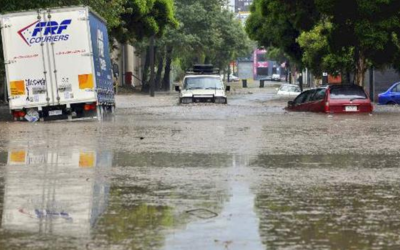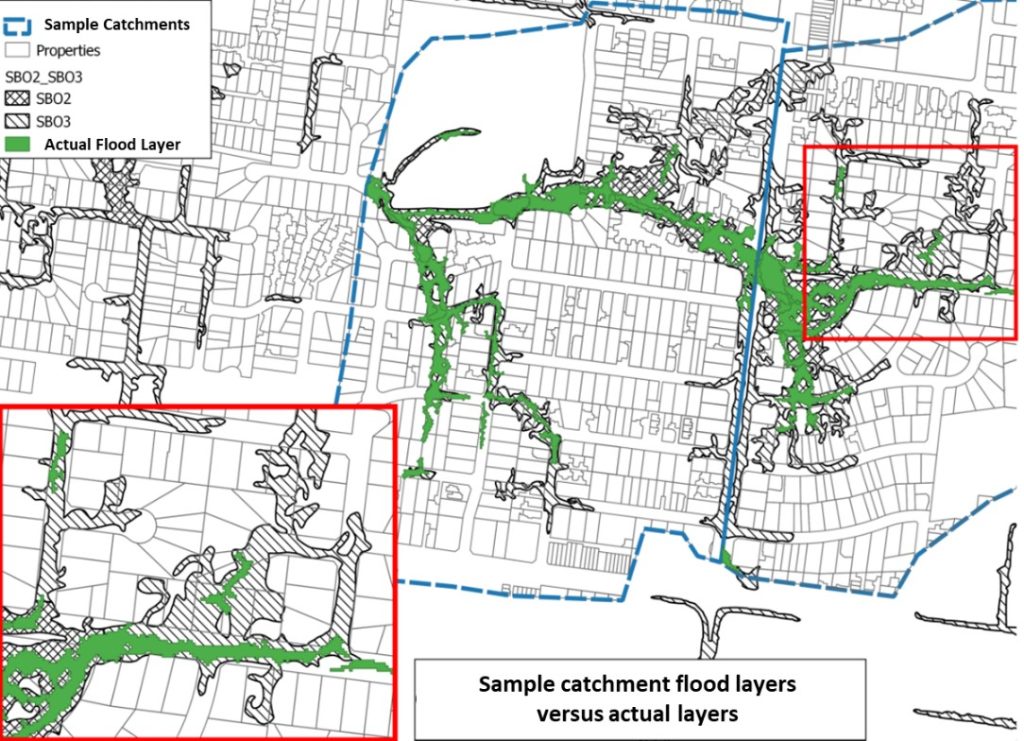
Comparison of the distributed approach (green) to the existing overlays (hatched) created using traditional mainstream methods
Is zero afflux the question or answer to better flooding outcomes?
Peter J Coombes and Andrew Allan.
Presentation at HWRS 2022 at 16:20 pm on Thursday 1 December at Brisbane Convention and Exhibition Centre.
Australia experiences strong variations in weather and associated hydrology, including cycles of droughts and floods. The frequency and severity of these events is increased by global climate processes such as the Southern Oscillation Index (La Nina and El Nino) and climate change. Recent flooding events and the emergence of two-dimensional hydraulic models has led to a call for zero afflux (0 mm change) in comparative flood studies to support development approvals.
Afflux refers to a predicted change in flood levels estimated by flood models between an existing or future scenario and a proposed option. Acting to minimise actual flooding impacts is very important goal. The aim of no worsening impact is fundamental to our practice as hydrologists but the mechanisms to understand this are not perfect and are scale dependent.
This investigation employs case studies of mainstream versus distributed effects, and joint probability of rivers and sea levels with climate change to highlight the significant challenges underpinning the elegant zero afflux narrative. There is a need to consider the random, relative and systemic errors that apply to all hydrological and hydraulic inputs, such as rainfall, topography and model structure. However, the resolution of these errors may be insignificant in comparison to the different modelling methods and assumptions that underpin the base scenarios used for comparison.
Is zero afflux the real challenge or solution for better flood management? It is vitally important to establish science and legally based rules for fair administration of the objectives and exploration of options that respond to flood risks. Otherwise, there will be a substantial administrative burden for marginal benefit. Our professionals and agencies need to be prepared for a different and challenging future, and our methods need to be fit for purpose from a whole of society perspective.
